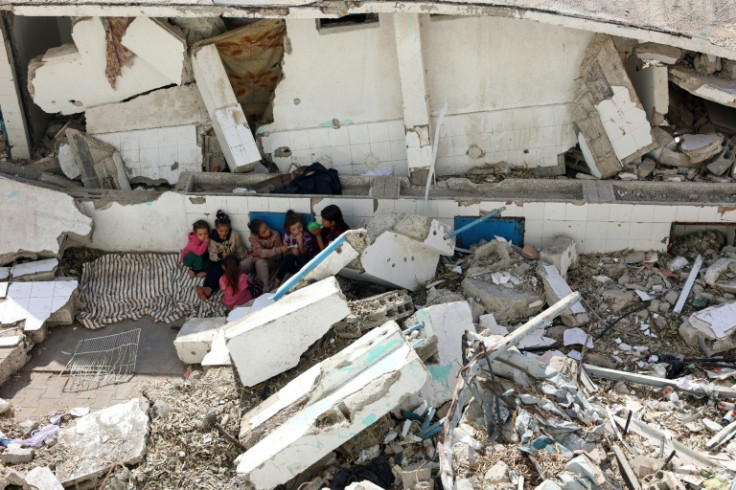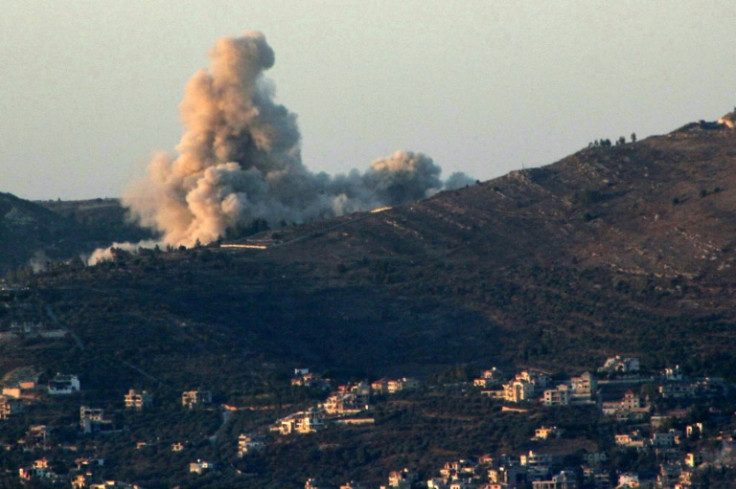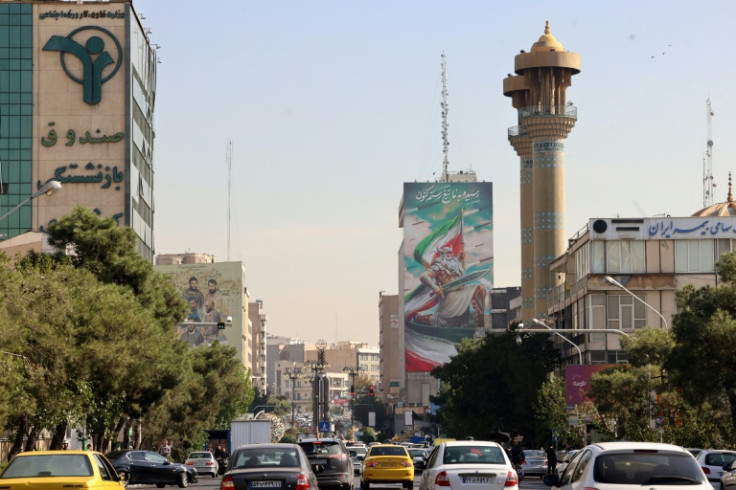Israel Hits Iran Military Sites In Retaliatory Strikes

Israel bombed military targets in Iran on Saturday, killing at least two soldiers, fulfilling a vow to avenge a missile barrage and stirring fears of a full-scale Middle East war.
Israel warned Iran would "pay a heavy price" if it responded to the strikes, and the United States and Britain both demanded Tehran not escalate the conflict further.
The Islamic republic insisted it had the "right and the duty" to defend itself, while its Lebanese ally Hezbollah said it had targeted a southern Israeli airbase and a northern intelligence base.
Confirming the strikes after explosions and anti-aircraft fire echoed around Tehran, the Israel military said it had hit Iranian missile factories and military facilities in several regions.
The "retaliatory strike has been completed and the mission was fulfilled", while Israeli aircraft "returned safely", a military spokesman added.
Iran confirmed an Israeli attack had targeted military sites in Tehran province around the capital and other parts of the country, saying the raids caused "limited damage" but killed two soldiers.
"Iran has the right and the duty to defend itself against foreign acts of aggression," the foreign ministry said, citing Article 51 of the UN Charter.
Israel had vowed to retaliate after October 1, when Iran fired about 200 missiles in only the second ever direct attack against its arch-foe. Most of those missiles were intercepted but one person was killed.
The Israeli retaliation drew condemnation from Hamas, Iraq, Pakistan, Syria and Saudi Arabia, which warned against further escalation. Jordan stated that Israeli jets had not used its airspace.
Hezbollah, the Lebanese movement backed by Iran, said it had fired rockets at Israeli soldiers near the village of Aita al-Shaab in southern Lebanon, and launched drones against Israel's Tel Nof air base.
Tel Nof is south of Tel Aviv and, if confirmed, the drone mission would be the militia's first attempt to hit it in this round of fighting.
Israel is already engaged in combat on two fronts.
Since last month, it has been conducting a war against Hezbollah in Lebanon, including strikes that have killed senior leadership and ground incursions seeking to destroy missile sites.
And, for more than a year since Hamas launched the October 7 cross-border attack, Israel has been fighting a war in Gaza that has caused mass civilian casualties in the densely populated Palestinian territory.
The United Nations has warned the "darkest moment" of that conflict was unfolding, with Palestinians facing a dire humanitarian crisis and daily Israeli bombing.
Along with Hezbollah and Hamas, Iranian-allied groups in Yemen, Iraq and Syria, have carried out attacks during the fallout from the Gaza war.
At roughly the same time as Israel struck targets in Iran, the Syrian state news agency SANA said an Israeli air attack targeted military positions in central and southern Syria.
The Islamic Resistance in Iraq, a loose network of pro-Iran factions, claimed responsibility before dawn Saturday for a drone attack against a "military target" in northern Israel.
On Friday, two people died from shrapnel wounds after a Hezbollah rocket barrage into Israel's north, Israeli officials said.
US National Security Council spokesman Sean Savett said Israel's response to Iran was "an exercise in self-defence".
He urged Iran to "cease its attacks on Israel so that this cycle of fighting can end without further escalation".
The Israeli military has blamed "Iran and its proxies" in the region for "relentlessly attacking Israel since October 7th", when Hamas's attack against Israel triggered the Gaza war.
That attack resulted in the deaths of 1,206 people, mostly civilians, according to an AFP tally of official Israeli figures.
Dozens of captives seized on that day are still held by militants in Gaza.
Israel's retaliatory bombardment and ground war in Gaza has killed 42,924 people, the majority civilians, according to data from the Hamas-run territory's health ministry, figures the United Nations considers reliable.
In late September Israel turned its focus to Lebanon hitting, Hezbollah targets and leaders and then sending in ground troops.
Israel says the aim is to make the north of its country safe for tens of thousands of displaced civilians to return.
At least 1,580 people have been killed in Lebanon since September 23, according to an AFP tally of Lebanese health ministry figures.
In April, in its first-ever direct assault against Israeli territory, Iran launched more than 300 drones and missiles.
Tehran said the barrage was retaliation for a strike on Iran's consular annex in Damascus that killed members of its Islamic Revolutionary Guard Corps.
Explosions later in April shook Iran's Isfahan province in what US officials, cited by American media, said was Israeli retaliation.
Iran said its October 1 missile attack on Israel was retaliation for an Israeli air raid that killed Hezbollah chief Hassan Nasrallah as well as the assassination in Tehran of Hamas political leader Ismail Haniyeh.
On Friday, Gaza's health ministry accused Israeli forces of storming the last functioning hospital in the territory's north in a raid it said left two children dead.
The Israeli military said its forces were operating around Kamal Adwan Hospital in north Gaza's Jabalia refugee camp but was "not aware of live fire and strikes in the area of the hospital".
The Israeli military says it is seeking to destroy operational capabilities Hamas is trying to rebuild in the north.
Also on Friday, Gaza's civil defence agency said Israeli drone strikes killed 12 people waiting to receive aid near the Al-Shati refugee camp.
Volker Turk, the United Nations High Commissioner for Human Rights, said Israel's policies in northern Gaza "risk emptying the area of all Palestinians".
"We are facing what could amount to atrocity crimes, including potentially extending to crimes against humanity."
He added: "Unimaginably, the situation is getting worse by the day."




© Copyright AFP 2025. All rights reserved.





















